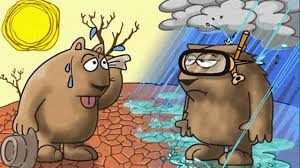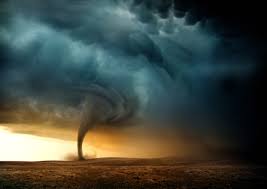Global Climate Change
There has been much discussion in the news in the last year about climate change, previously referred to as global warming. The term global warming is technically correct (the overall trend is global temperatures rising) but the term is a bit deceiving because it implies that warming is the only thing happening, so global climate change is the preferred terminology. So what is the difference between weather and climate? It boils down to time.
Weather is the actual condition over a short period of time – this is measured in days or months. Weather is an event – rain, snow, or a heat wave.
Climate is the average condition over long period of time – this is measured in years and decades. NOAA measures climate in 30 year increments in given areas that make up the average temperature and precipitation measurements we hear about.
How fast are things changing?
The overall warming trend in the past 100 years is about 10 times faster than the previous 100 years. Current models predict the mean temperature will rise 2-6 degrees C in the next 100 years – about 20 times faster than the previous 100 years.
Why is this important?
Changing temperatures and extreme weather events effect all life on the planet – humans, plants and animals from the polar regions to the forests and the desert. Extreme weather conditions and patterns (deep freezes and heat waves) are not only inconvenient to people but disturb the natural cycles of plant and animal life and strain our resources. It affects food crops, water use, and the global economy as a result. Warmer ocean temperatures melt ice caps, cause rising ocean levels killing coral reefs, and cause more frequent and stronger hurricanes. Plants and animals cannot adapt as quickly as the climate is changing so species sicken and die, shifting the balance of the food chain. The economic impact of warmer oceans is vast, from impacts to the fishing industry to the cost of disaster relief. In 2000 there were 15 named hurricanes – in 2005 there were 28 including Hurricane Katrina that caused 1833 deaths and caused $133 billion dollars of damage.
What can we do about it?
Scientists have determined that the increases in green house gas emissions (GHG) from human activity have increased substantially in the last 100 years and continue to rise at an alarming rate. This correlates directly with the temperature increases we are recording, so we can make a difference by reducing our GHGs. The Paris Climate Agreement is global agreement to reduce environmental impact. If you are interested in reading more about it, go to http://unfccc.int/paris_agreement/items/9485.php
As a business there are dozens of strategies you can employ that will not only reduce your impact but save your business money. A few ideas can be found here https://smallbiztrends.com/2017/04/how-to-reduce-your-carbon-footprint.html
On a personal level there is plenty you can do to reduce your impact – reduce, reuse, compost, recycle, drive less, consume less, waste less.
Davis Consulting California can help you plan and implement your reduction strategy if you find yourself unsure where to start.
If you would like to join Davis Consulting California and declare your company’s commitment to the Paris Agreement, see https://www.wearestillin.com/we-are-still-declaration
Whatever you decide is best for you and your business, even making small changes can have a big impact. Together we can make a difference!
#wastenot #climatechange #wearestillin #weather #reduceyouruse #energy #GHG #emissions #parisagreement #saveourfood #water #polarbears #globalclimatechange #globalwarming #weather



